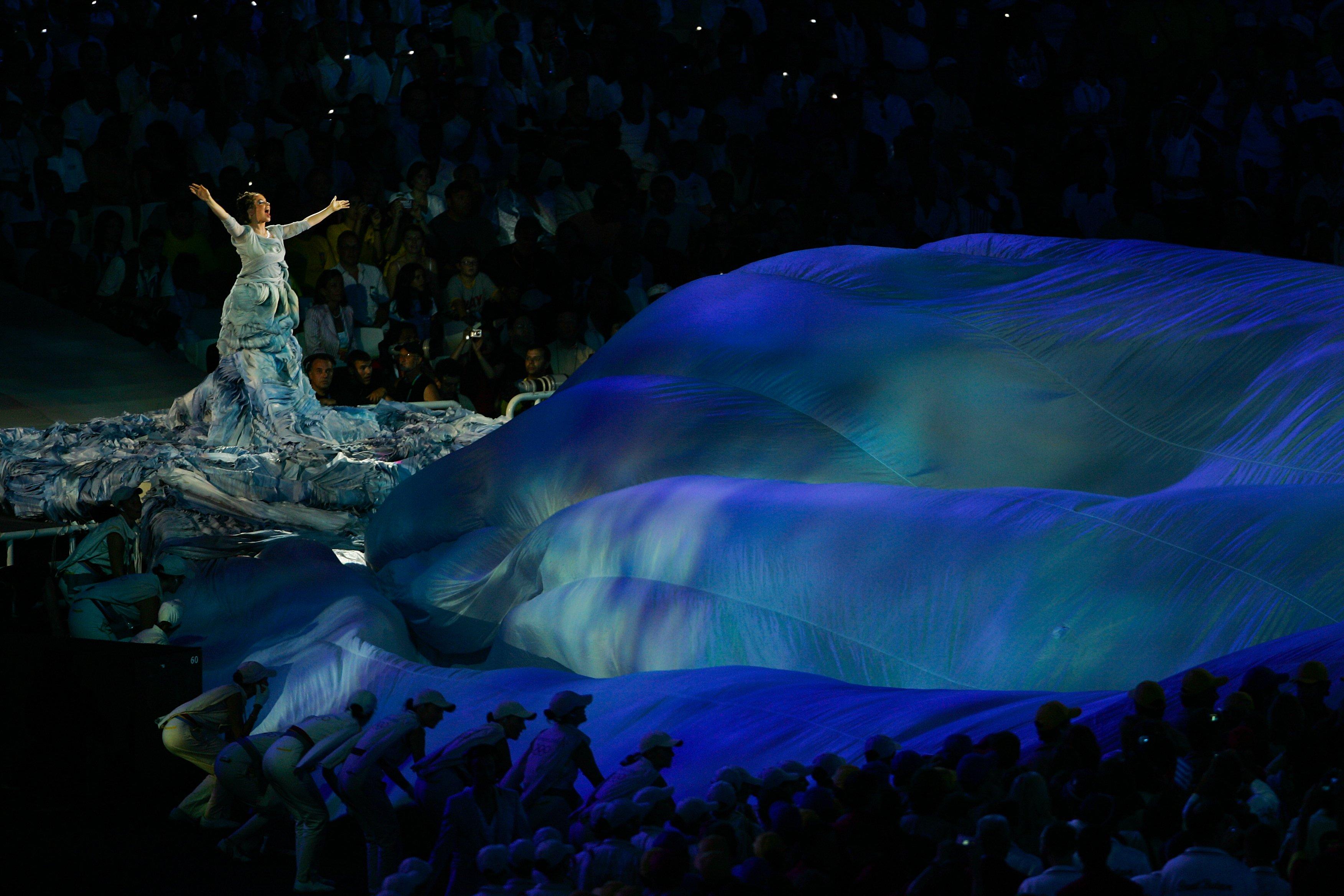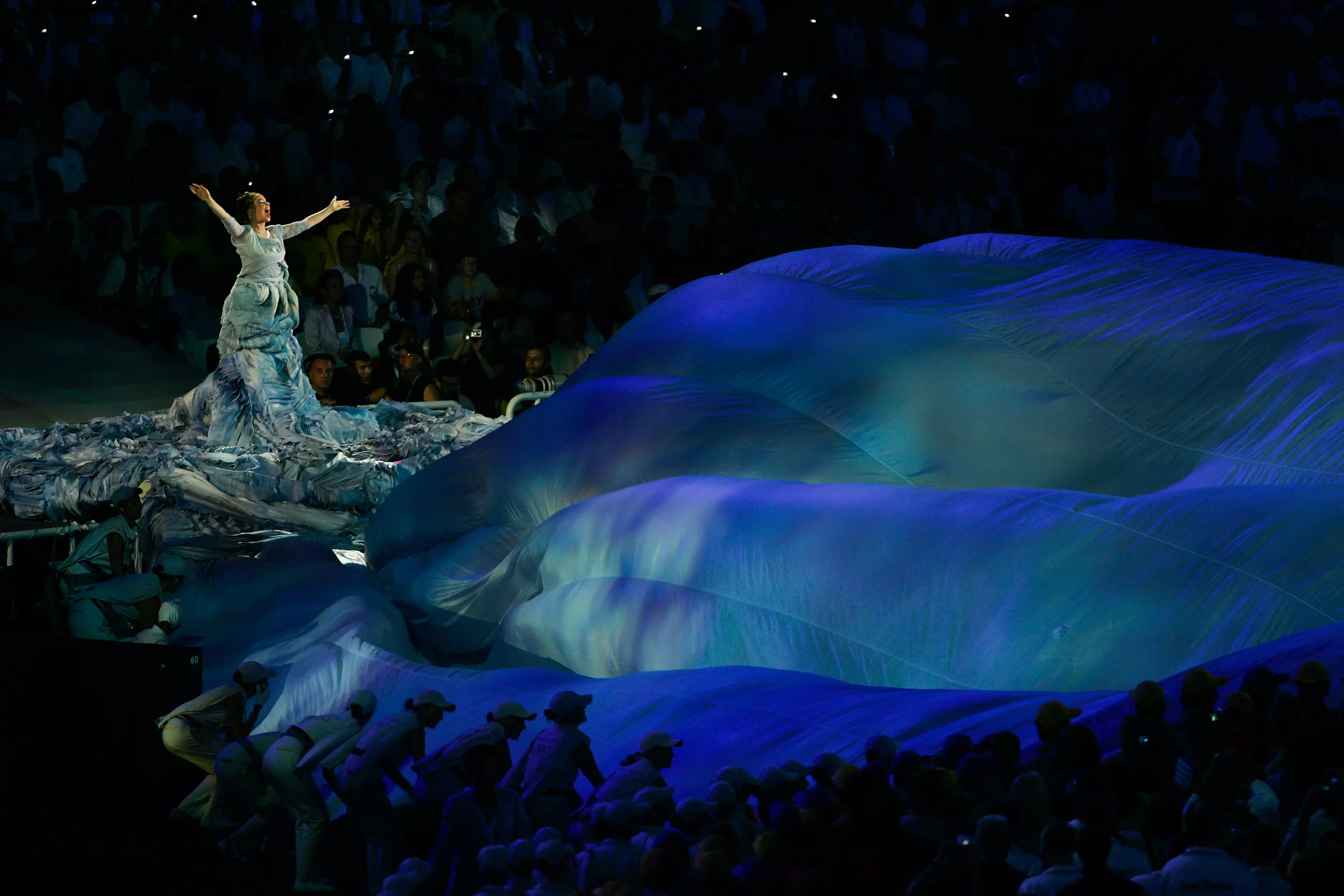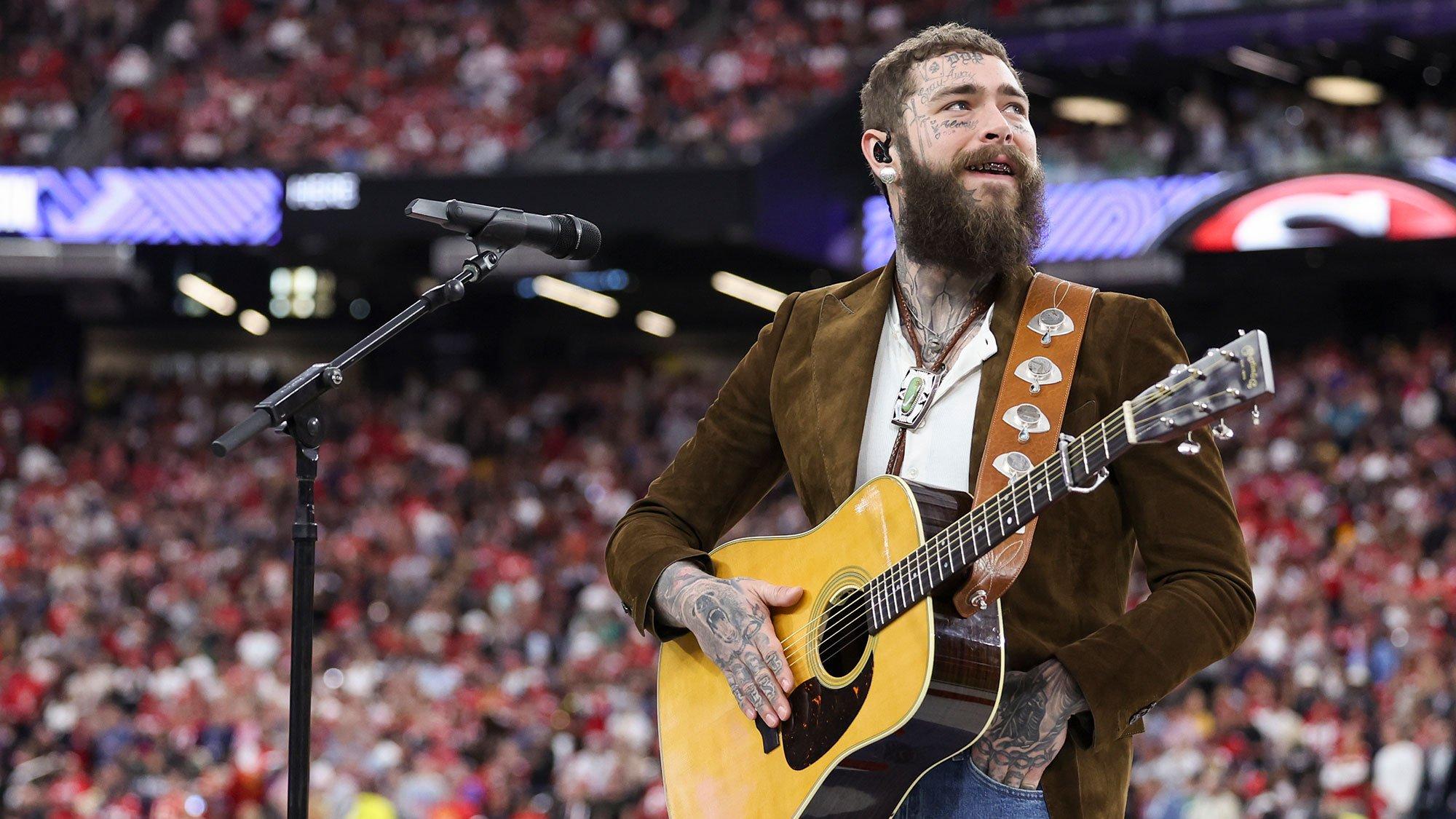"I feel I’ve always been in the business of shedding labels, but the world is doubling down," says Ani DiFranco.
The GRAMMY-winning singer has long been heralded as rebel-rousing and outspoken. On her latest release, Unprecedented Sh!t, DiFranco continues to counter the ideologically divided world, and the labels it imposes. The album is DiFranco's 23rd, and arrives May 17.
It's not coincidental that Unprecedented Sh!t arrives in the midst of pre-election campaigning, affirming DiFranco's drive to use music as a vehicle to protest deep-rooted inequality and prejudices in America and beyond. On "Baby Roe," DiFranco reaffirms women's right to agency over her body and her access to a safe abortion. (DiFranco’s charitable foundation Righteous Babe has long supported women’s rights initiatives, including the National Abortion Federation, Planned Parenthood, and National Institute of Public Health.) Reproductive freedom is "an essential civil right, the centerpiece of what it means to be free as a woman in society," she says.
DiFranco has never shied from wearing her heart on her sleeve and championing her political views. Pre-election in 2016, she penned Binary, an album that explored themes of women’s right to choose, non-violence, and the fundamental necessity to coexist despite different views. The album epitomized what fans have long known: DiFranco’s politics are personal, delivered with a vulnerability and earnestness that gives her songs incredible resonance.
She is a lyricist who has always worn her heart on her sleeve and, in 2019, brought that candor to a bestselling memoir. No Walls and the Recurring Dream detailed her Buffalo, New York childhood and adventures as a young folk-punk musician, a music label founder (Righteous Babe Records in 1989), a wife and mother. DiFranco continued to evolve post-memoir; in 2021, she dropped new album Revolutionary Love, and in 2023, released the 25th anniversary edition of Little Plastic Castle. She is, unsurprisingly, determined to rally the disillusioned into using their vote and their voices in the face of some, well, unprecedented s—. Indeed, she’s been writing her second children’s book, Show Up and Vote, to be released on Aug. 27.
But making record after record, touring and running her Righteous Babe Records (founded in 1989) hasn’t stopped DiFranco from exploring new artistic territory. She made her Broadway debut in the popular musical "Hadestown" in February this year, nearly 15 years after creating its original studio concept album.
DiFranco was life-altering for a generation of teenagers in the 1990s, perhaps peaking with 1995's Dilate. DiFranco’s spirited, down-to-earth delivery and fearlessness felt empowering, especially when the radio was otherwise transfixed by male-dominated grunge bands. DiFranco sang about burgeoning and disintegrating relationships. Her albums were documents of a buzzing, raucous city life; tales that played out in Chicago, New York, on trains, in shabby apartments, in cafes and bars. Not until "Red Letter Year" in 2008 did listeners hear a more relaxed DiFranco, who moved to the Bywater neighborhood of New Orleans the same year.
A transition from thriving in a bustling urban environment to the remoteness of her Louisiana home, which she shares with her 15-year-old daughter and 11-year old son, altered DiFranco's perspective. Today, DiFranco is prone to discussing the consciousness of rocks, plants and wildlife as easily as reproductive freedom. This spiritual awareness and a grounded observance of modern America presents both lyrically and musically on Unprecedented Sh!t, which seamlessly blends organic instrumental and vocal tracks with dissonant, warped synth effects.
DiFranco is unafraid to talk about aging and contemplating new ways to make music, now that she has finished a 23-album "series" of her life thus far. She is, of course, "an artist ‘til I die," so there is no risk that Unprecedented Sh!t is the last we will hear of DiFranco.
Ahead of the release of Unprecedented Sh!t, Ani DiFranco spoke with GRAMMY.com about her latest album, her Broadway debut, and a career of DIY achievements.
You have released 22 albums before this, which is a huge body of work for any artist. How is Unprecedented Sh!t a continuation of those ideas and stories, and how does it diverge?
In some sense it’s a continuation, and in another sense it’s a divergence in any of my records. There’s a sort of sonic divergence when you’re working with [producer] BJ [Burton], obviously. All my albums are unique in and of themselves, some veer more personal while some veer more political. Sometimes I’m more inward looking, and sometimes more outward looking.
I think we all have these different moments in our life that we move through. On this album, there was a lot of looking at my society, my culture, and speaking to things bigger than I.
I feel like I shouldn’t say this, but I wonder if it’s the last in a series.
What series is that?
The 23 albums series in the life and times of Ani D. I’m 53 pushing 54, and I hate to make any statements about my farewell tour or anything, but I feel less motivated to write songs the way I have been. It’s a mode I’ve thoroughly explored. These days, I’m working on a theater piece and writing songs towards a theatrical production.
I’m always creating and inventing in my mind, but there’s definitely an itch to change the mediums.
There’s a lot of dissonant sounds, especially in the two tracks "Baby Roe" and "Unprecedented Sh!t." There's a sense of things falling apart, and that the world is driving you to the edge. Tell me about the state of mind you were in when you wrote those songs.
The reason I wanted to work with BJ is because he lives in world of machines, [and has] an immense facility with machines I know nothing about. After so much making, recording and producing my own records, I have longed to incorporate the noisiness of modern life, and the presence of machines in our lives. I couldn’t do that on my own.
In this modern age, the playing of instruments is just one spice, one ingredient to use in modern recording. There are so many ways to make sounds, put together tracks. With BJ, I was able to explore other worlds. So inherently, through us and the process, this sort of anxious, punishing, frenetic noise of the world comes in. The tenor of life in this world right now expressed itself in the music and recordings, balanced with moments of deep quiet and retreat.
The super dissonant, chaotic sounds BJ created from my guitar [are] really extraordinary. I would make recordings of just me and my guitar, and I overdub a few things — like me playing percussion, or vocal overdubs. He just manipulated [those sounds] in his spaceship, surrounded by buttons, toggles and dials, to create the soundscapes but the raw materials were extremely organic.
The only thing not manipulated is my voice.
On "New Bible," you sing "Our roots are meant to be interwoven" and that "men should stand down when women give birth." Tell me about your view of women, their role as leaders and mothers, and whether your views have changed over time.
I think that my views haven’t changed in that I feel differently, but I understand more in terms of reproductive freedom for women. It’s an essential civil right, the centerpiece of what it means to be free as a woman in society. As I get older, I understand with my full being that consciousness supersedes the body. Our spirit bodes and re-embodies, and this is one of many lives, identities and stories, and essentially me and you are one being. We are God, you and I and every living thing. Women are agents of creation. I wrote a song, "Play God," a few years ago: "you don’t get to play God man, I do". I’m literally the creator in this situation.
You have to respect creation and agents of creation, such as women. I speak to it in "New Bible" and in "Baby Roe," that we need to step back a minute from patriarchal religious dogma, from political debate, and look at what it is to be alive. It is not the body. Consciousness is the spirit, the soul, is God, and is light, and that is eternal. So, there!
Did performing as Persephone in "Hadestown" on Broadway have an impact on the music or themes on this album, in which you sing about hell and the sanctity of women, or was there just an organic alignment?
I relate very much to the character, and I have been involved in the trajectory of "Hadestown" since the beginning, since it was a gleam in Anaïs Mitchell's eye, so it’s very cool to come back into the fray after all these years to perform the part on stage.
There are two couples in the musical: Orpheus and Eurydice, the young starry-eyed lovers, and Hades and Persephone, the old couple, married for eons as Gods. They’ve been through it all together, there’s a real push and pull tension between them, and Persephone is the bestower of life on Earth, joy, and bounty, while Hades is the captain of industry and the underworld — which represents the hell of the modern world and its enslavement of humankind.
It’s a prescient modern take on Greek mythology. The relationship between her and Hades, you know they don’t ride into the sunset, but there’s hope – like, "we’ll try again next year" – and after being married for 20 years [to music professional Mike Napolitano], I very much relate to that need to renew one’s love and one’s relationship.
I’ve been a fan of yours since "Dilate" and so many of your songs are deeply personal to me. Do you have favorites from your earlier albums, or songs of yours that feel deeply necessary to perform live and to revisit frequently?
Certainly there’s a bunch that have risen as favorites for me, mostly because they work live, they’re very playable, and [are] other people’s favorites. Some that don’t work well live because they’re too slow, or sad, or too something, are my secret favorites. Those are "Hypnotized," "Hour Follows Hour," "Albacore" or "The Atom," which is epic at 10 minutes.
There’s a lot of allusion to nature on this album, which is quite different to those earlier albums in which you were in bars, on trains and on the road. Tell me about how your connection to the land informs who you are, how you live, and your perspective.
It’s been a long time coming. I’ve been a city kid most of my life and I’ve been rapt with the human drama therein, but like many humans, it gets old. The land — all the forms of consciousness that are not human, all the sentient beings…plants, trees, rocks — is something more profound than human drama.
I live in Louisiana, New Orleans, way, way, way on the edge of town, right on the Mississippi River, which feels both very remote and very New Orleans. It very much feels like home after 20 years now. It’s an immense place, culturally and musically, and I love being surrounded by snakes, owls, the birds on the river: herons, eagles, ducks, egrets. It’s immense and wonderful. Turtles wander by in this big swamp. I really love it there.
You sing "I defy being defined" on "The Thing At Hand." Do you feel that rather than growing into firmer descriptions or identifying labels, you’ve actually shed them instead and is that liberating or confusing?
I feel I’ve always been in the business of shedding labels, but the world is doubling down. I sang about relationships with women and men when I was young, or I sang about my experience as a young woman not wedded to gender being the defining character of a person, or sexual orientation, or race, or blood. I feel like I've always tried to write revolution through just the approach to storytelling and my songs. You cannot hold me down with your preconceived notions of identities and "us and them" and tribe, so I feel like I've always been at this work. And in America, I feel like identity politics has become so fever pitched.
I’m a child of the '70s when identity politics was about asserting identity and waking up culture to the fact that we’re not all middle-aged white dudes, but it’s as though the tool of liberation has become the cage itself. [My children’s book] The Knowing speaks to this: Use identity for whatever purpose it serves to know and find yourself, your tribe, to know you’re not alone but also beware of identity and ending up in a silo, at odds with your fellow humans.
On 'Little Rope,' Sleater-Kinney Still Wear Their Hearts On Their Sleeves









